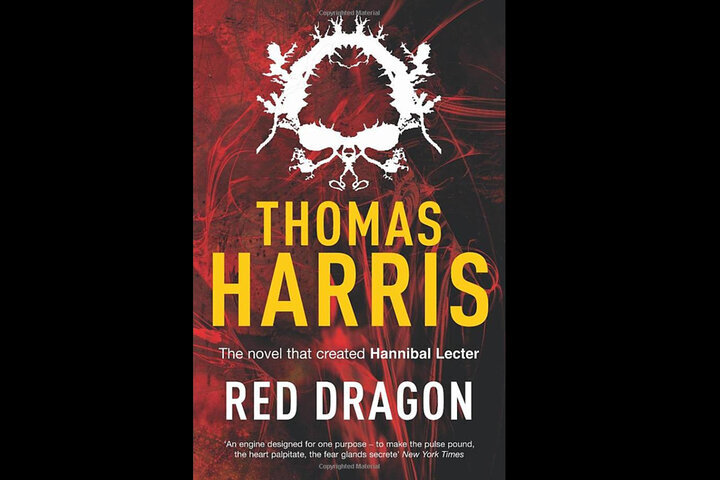Namayesh Radio presents adaptation of “Red Dragon” in seven episodes

TEHRAN – The radio play “Red Dragone,” directed by Ayyub Aqakhani has recently been produced and aired in seven episodes on Namayesh Radio, an Islamic Republic of Iran Broadcasting (IRIB)’s radio station dedicated to audio plays and performances.
Aghakhani, a renowned theater and television actor and director, has adapted American writer Thomas Harris’ novel into a seven-part radio drama to introduce contemporary literature to radio drama enthusiasts, Mehr reported on Monday.
The cast of the radio play includes Mohsen Bahrami, Roya Fallahi, Sina Nikoukar, Mahin Nasri, Shirin Sepehrad, Mohammad Omrani, Reza Omrani, and Shima Janqorban.
Veteran Iranian storyteller Maryam Nashiba also contributed to the play as the narrator.
Published in 1981, “Red Dragon” is a seminal work in the psychological horror and crime thriller genres. The novel is renowned for its intense narrative, complex characters, and dark exploration of human depravity. It delves into the minds of both a brilliant profiler and a notorious serial killer, creating a compelling and chilling story.
The narrative centers around Will Graham, a former FBI profiler who once captured the infamous psychiatrist and cannibalistic serial killer, Dr. Hannibal Lecter. Graham's encounter with Lecter left him physically and emotionally scarred, prompting his retirement from active duty. However, Graham’s expertise is called upon once again when a new serial killer, dubbed the Tooth Fairy, begins to terrorize families across the southeastern United States. The killer's gruesome modus operandi—breaking into homes, murdering entire families, and engaging in post-mortem acts—sets a terrifying tone for the story.
The killer’s rampage begins with the Jacobi family in Birmingham, Alabama, and continues with the Leeds family in Atlanta, Georgia. The killer’s modus operandi involves violent home invasions, shootings, and disturbing post-mortem acts, including biting victims’ bodies.
Agent Jack Crawford, Graham’s former mentor, urges him to return to active duty. Despite initial reluctance, Graham investigates the crime scenes and uncovers clues—such as a carved Chinese character, the mahjong symbol known as the red dragon—leading him to believe the killer is a disturbed individual with a fixation on William Blake’s “The Great Red Dragon”.
Graham’s investigation points him toward Francis Dolarhyde, a shy and troubled man working as a film processing technician. Dolarhyde, born with a cleft palate and haunted by childhood abuse, believes himself to be the embodiment of the Red Dragon from Blake’s painting. He perceives his murders as a means of transformation, becoming the dragon and changing his victims. Dolarhyde’s inner turmoil is intensified by his obsession with a blind co-worker, Reba McClane, which conflicts with his homicidal urges.
As the case progresses, Graham is forced to confront Lecter again, who offers cryptic guidance. Meanwhile, Dolarhyde’s obsession with Reba leads to destructive jealousy and violence, culminating in a fiery climax where Dolarhyde attempts to kill her but ends up fatally wounded himself. Graham’s pursuit of the killer becomes personal and dangerous, culminating in a violent confrontation that leaves Graham with permanent facial scars.
“Red Dragon” was adapted into the 1986 film “Manhunter”, directed by Michael Mann, which starred William Petersen as Will Graham and Brian Cox as Hannibal Lecktor. While the film received mixed reviews and was not a commercial success at the time, it gained a cult following over the years. Its portrayal of Harris’ story laid the groundwork for future adaptations and influenced the genre heavily.
The novel’s popularity surged after Harris penned its sequel, “The Silence of the Lambs” (1988), which was adapted into a critically acclaimed film in 1991, earning Anthony Hopkins an Academy Award for Best Actor. The success of this film revived interest in “Red Dragon”, leading to its 2002 remake directed by Brett Ratner, with Hopkins reprising his role as Lecter. The character of Lecter, a brilliant psychiatrist with a penchant for cannibalism, became one of the most iconic figures in crime fiction, further cemented by the adaptations and Harris’ influence on the genre.
The influence of the “Red Dragon” extends beyond literature. Its characters and themes have permeated popular culture, inspiring films, television series, and ongoing debates about the nature of evil. Harris’ meticulous research, including FBI behavioral profiling techniques, lends authenticity to the story’s chilling realism.
SAB/
